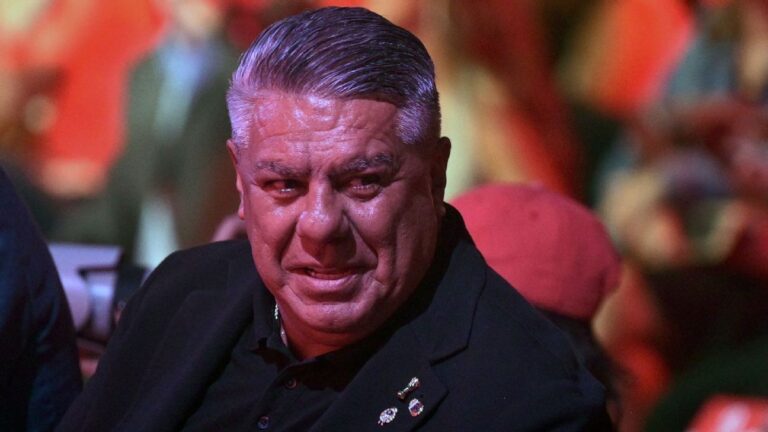As they began their fledgling football careers years ago, Rafael Struick, Ivar Jenner, Justin Hubner and Nathan Tjoe-A-On would have dreamt of gracing the international stage.
Having been born and raised in Netherlands, after the FIFA World Cup and the European Championship, the Olympic Games — while an age-group competition in the men’s football discipline — would have been the next most-illustrious of tournaments they would have strived for.
The quartet are currently just one win away from getting to this year’s Olympics in Paris.
Curiously, if they do get there, it will be in the red of Indonesia rather than the orange of the Dutch.
In what has been a remarkable AFC U-23 Asian Cup debut, Indonesia have exceeded expectations to reach the semifinals, where their dream run came to an end on Monday following a 2-0 defeat to Uzbekistan.
They will now take on Iraq in Thursday’s third-place match with a guaranteed Olympic berth on the line and, even if they lose, they could still book their ticket to Paris via an intercontinental playoff against African outfit Guinea later this month.
Much of Indonesia’s success at the U-23 Asian Cup has been down to the focus on youth that was instigated by coach Shin Tae-Yong over four years ago, when he took charge of Southeast Asian’s sleeping giants who were then in the doldrums.
Since Shin’s arrival, Indonesia have finished runners-up at the AFF Championship — the region’s premier international tournament — and reached the knockout round of the AFC Asian Cup earlier this year for the first time, while the U-23s have also done well to win the gold medal at last year’s Southeast Asian Games — a first since 1991 — to go with a last-16 appearance at the Asian Games.
The willingness to afford plenty of exposure to many of their precocious talents means that the likes of Witan Sulaeman, Marselino Ferdinan and Rizky Ridho are all relatively seasoned campaigners despite their youth — and it is no surprise they have been leading Indonesia’s charge at the U-23 Asian Cup.
But it has also been helpful that have had a much-welcome injection of European experience.
It must be noted that, rather than outrightly handing out passports to foreign imports — which Indonesia have done in the past with the likes of Victor Igbonefo, Marc Klok and Ilija Spasojevic — the recent “naturalisation” efforts have centred around individuals with lineage through either their parents or grandparents, which goes someway in ensuring they do at least have some form of Indonesian identity.
And given Indonesia’s status as a former Dutch colony, it is no surprise that most of these additions to their ranks hail from Netherlands.
Struick and Jenner remain on the books of Dutch clubs ADO Den Haag and Utrecht respectively, while Tjoe-A-On is also currently in the Eredivisie on loan at Heerenveen from Swansea.
Meanwhile, Hubner left Netherlands and moved to Premier League outfit Wolves as an academy scholar at the start of 2020, but is on loan at J1 League outfit Cerezo Osaka at present.
It may seem like a whirlwind process given none of the quarter had represented Indonesia at senior level prior to 2023, yet they have long been identified as potential candidates through the football association’s talent identification program — which also procured other European-born players such as Sandy Walsh and Shayne Pattynama, while also previously earmarking current Inter Milan goalkeeper Emil Audero as a naturalisation prospect.
It has not taken them long at all to show what they can offer Indonesia, with Struick, Jenner and Hubner all part of the side that reached the round of 16 at the Asian Cup, and they have only gone from strength to strength at the U-23 Asian Cup.
While Struick is valued for his work rate as the focal point in attack, at times sacrificing his own output to get the best out of Marselino and Witan in deeper positions, he showed he can also be a weapon himself with a fine double in the shock quarterfinal upset of South Korea — including a superb 25-yard effort into the top corner.
Jenner and Tjoe-A-On look irreplaceable as Shin’s central midfield duo, offering plenty of physicality and bite while also being composed in possession, while Hubner has slotted seamlessly into the back five as the left-sided centre-back after arriving late and missing Indonesia’s first match due to club commitments.
It was been a well-rounded team effort — masterminded by Shin — that has gotten Indonesia tantalisingly close to a first Olympic appearance since 1956, when the Games was still a senior competition — yet it cannot be denied that their cause has certainly been helped by this increasingly-influential quartet.
The same four who could just be realising their Olympic dream later this year, albeit by representing the heritage of their ancestors rather than the nation of their birth.




